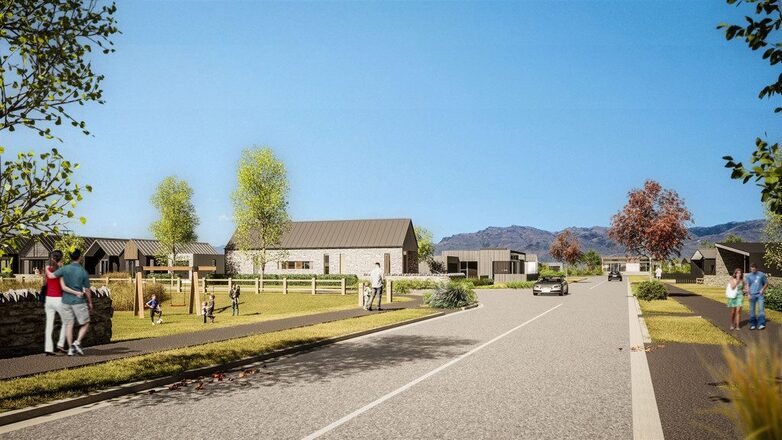Vineyard appeals Bendigo subdivision decision
Aimee Wilson
22 November 2024, 4:45 PM
 The Bendigo landscape is increasingly becoming developed for viticulture. PHOTO: SUPPLIED
The Bendigo landscape is increasingly becoming developed for viticulture. PHOTO: SUPPLIEDPeregrine Wines has appealed its Bendigo Loop Road subdivision that was declined by the Central Otago District Council (CODC) in June.
A hearings panel agreed with planning consultant Olivia Stirling the receiving environment, which was currently characterised by its open space natural character, would be compromised by further incremental subdivision in
the location.
Peregrine Wines first started a three-lot subdivision at Bendigo Loop Road back in 2021, then subdivided a 30ha lot into a further two lots a year later.
The initial piece of land subdivided was 38.9ha - split into three lots (5.46ha, 4.29ha and 29.17ha).
The 29.17ha lot was then split into a further two lots (3.47ha and 25.72ha), and now the company wanted to split the bigger piece that was left into a further 23.7ha and 2.005ha.
Stirling recommended in her planners report the subdivision be declined as the surrounding landscape had already reached a density that was unable to absorb any further fragmentation without significantly undermining the
rural character, amenity and open natural landscape values of the Rural Resource Area.
Although no change of land use had been made, nor any residential activity proposed on the bare land, one submitter said the application was sending mixed messages in recognising the possibility of future housing on the
sites.
The panel also considered that while the applicant had indicated there was no intention to establish residential activity on the site, in separate ownership there would still inevitably be multiple buildings or structures of some
sort on both sites.
Peregrine noted in its application that viticulture use of the site was more productive than its current agriculture use, and confirmed it had already purchased Sauvignon Blanc vines to plant within one of the new lots.
Peregrine appealed the Council’s decision for various reasons including the belief the decision incorrectly placed significant weight on the precedent consent might set for residential development if granted.
“This is speculative without evidence regarding what residential activity, if any, was planned by the appellant, and should have been treated as such by the hearings panel.”
The decision also did not sufficiently recognise that buildings, if any, could support rural production activities (for example, in providing accommodation to rural workers), the appeal submission said.
“The decision did not take into account the positive effects that dwellings, if any, would have on reducing the need for rural workers to travel to the site daily, some for a substantial distance.”
Lawyers also criticised the panel for relying “heavily” on a peer review of the productivity of the site – prepared by James Dicey of Grape Vision, who was a competitor to the appellant and did not propose any alternative
productive use to viticulture or a comprehensive economic assessment.
“The hearings panel placed significant weight on the peer review prepared by Mr Dicey, that the site, once subdivided, would have a small but appreciable loss of productivity.
“However, the evidence of the applicant – as an experienced viticulturist and steward of the site, and which concluded that overall the application would allow for a more sustainable and productive layout and use of the site
across two allotments – should have been given more weight and been preferred.”
Have a story to share?
Contact [email protected]
NEWS
NOTICEBOARD
JOBS







